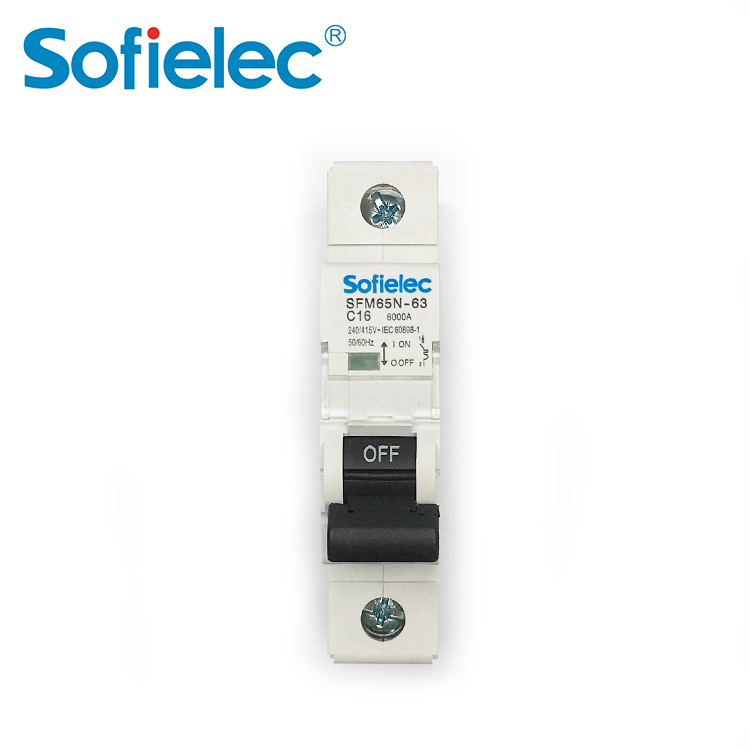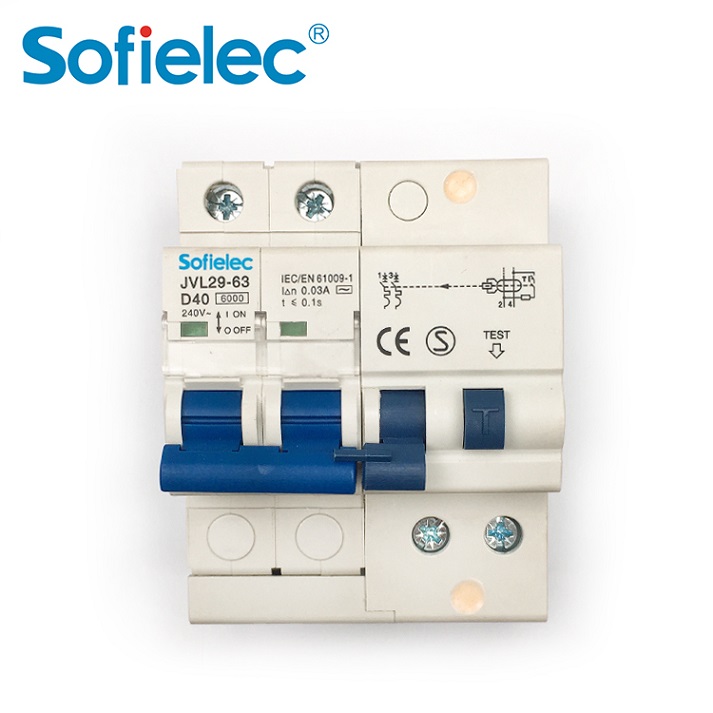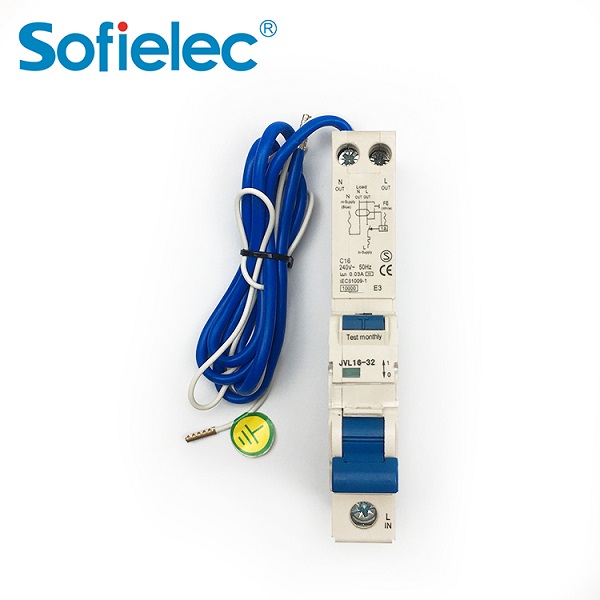SFM65N-63 miniature circuit breaker has a high breaking capacity (6kA), mechanical life is 4000 times, and tripping curve is B, C, D, DIN guide rail installation.
MCB 6KA C25 Types of Miniature Circuit Breaker SFM65N-63 Parameter
| Categories | Economic 4.5KA, 6kA Regular Series Circuit Breaker |
| Pole No | 1P. 1P+N. 2P. 3P. 3P+N. 4P |
| Rated current(A) | 1. 2. 3.4. 6. 10.16. 20. 25. 32. 40. 50. 63 |
| Rated voltage | AC 230. 230/400. 400 |
| Rated Frequency | 50/60Hz |
| Tripping curve | B. C. D |
| Rated short-circuit capacity (Icn) | 6000A |
| Mechanical life | 20000 times |
| Contact position | indication window |
| Degree of protection | IP20 |
| Connection terminal | Pillar terminal with clamp |
MCB 6KA C25 Types of Miniature Circuit Breaker SFM65N-63 Construction and Feature
■ Fine and unique appearance,advanced design
■ Short-circuit and overload dual-protection performance
■ High-breaking capacity (6kA) that is leading among the world similar products
■ Mechanical life:4000 times
■ Convenient and reliable installation
MCB 6KA C25 Types of Miniature Circuit Breaker SFM65N-63 Technical Data
■ Model: SFM65N-63
■ Rated current(A): 1、2、3、4、6、10、16、20、25、32、40、50、63
■ Rated voltage: AC 230.230/400, 400
■ Rated Frequency: 50/60Hz
■ Tripping curve: B,C,D
■ Rated short- -circuit capacity (Icn) :6000A
■ Mechanical life: 20000 times
■ Contact position indication window
■ Degree of protection: IP20
■ Connection terminal:Pillar terminal with clamp
■ Connection conductor: up to and including 16mm
■ Terminal Connection Height:H1=19.5mm,H2=21 5mm
■ Installation:DIN-rail mounting
MCB 6KA C25 Types of Miniature Circuit Breaker SFM65N-63 Characteristic Curve

MCB 6KA C25 Types of Miniature Circuit Breaker SFM65N-63 Power Conumtion
| Rated current range(InA) | Max consumption/pole(W) |
| In<10 | 3 |
| 10 | 3.5 |
| 16 | 4.5 |
| 25 | 6 |
| 32 | 7.5 |
| 40 | 9 |
| 50 | 13 |
Wiring Diagram

Overload Current Protection Characteristics
| Test Procedure | Type | Test Current | Initial State | Tripping or Non-tripping Time Limit | Expected Result | Remark |
| a | B,C,D | 1.13In | cold | t≤1h | no trippint | |
| b | B,C,D | 1.45In | After test a | t<1h | tripping |
Current in the 5 s in the increase of stability |
| c | B,C,D | 2.55In | cold |
1s60s(In≤32A) 1s32A) |
tripping | |
| d | B | 3In | cold | t≤0.1s | no tripping |
Turn on the auxiliary switch to close the current |
| C | 5In | cold | ||||
| D | 10In | cold | ||||
| e | B | 5In | cold | t<0.1s | tripping |
Turn on the auxiliary switch to close the current |
| C | 10In | cold | ||||
| D | 20In | cold |
Overall&installation Dimensions

> What is mccb and mcb?
MCCB, for large - scale industrial and commercial use, handles high - current loads, detecting over - currents with thermal - magnetic or electronic trip units. MCB,...
> Is Circuit breaker AC or DC?
Circuit breakers can be designed for both AC (alternating current) and DC (direct current) applications. However, AC and DC circuit breakers have some differences in...
> How to use Circuit Breaker?
Select a suitable circuit breaker based on circuit requirements, install it in the electrical panel after power - off, let it monitor current during normal operation...
> Market Prospect Analysis of Circuit Breakers
The circuit breaker market has witnessed steady growth over the past few years, driven by the expansion of power infrastructure, industrial automation, and the burge...








